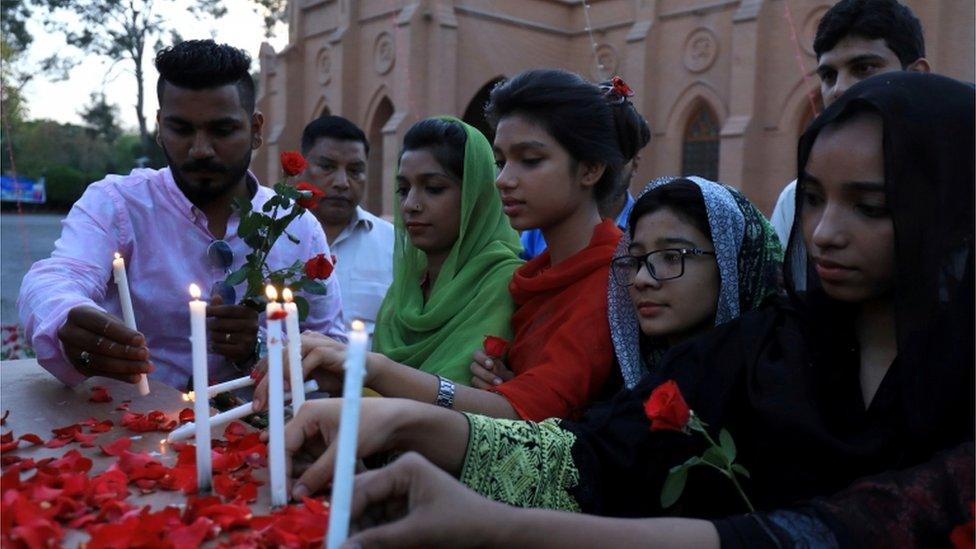Sri Lanka attacks: Christians pray at home one week after bombings
- Published
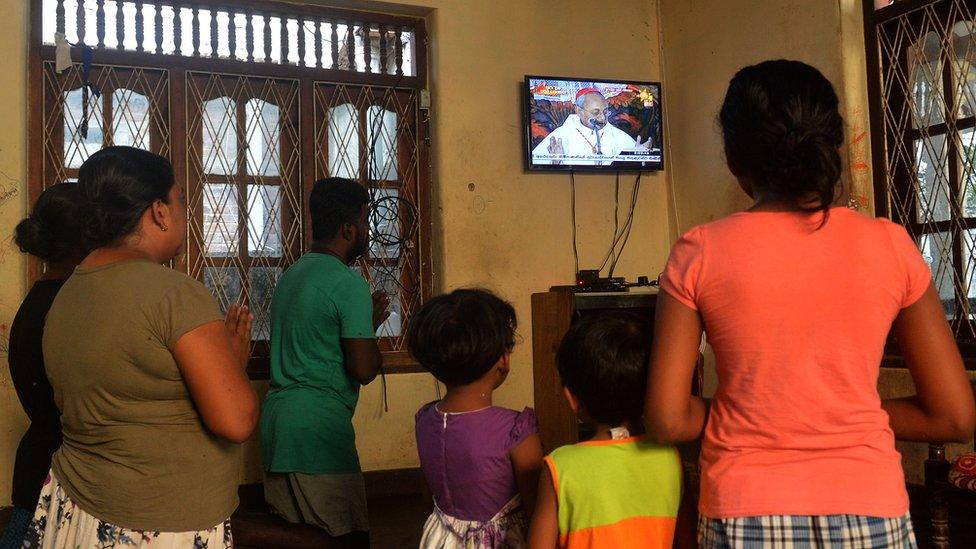
A family in Negombo prays as they follow the Archbishop of Colombo's televised service
Christians in Sri Lanka have prayed at home one week after a series of deadly bombings by Islamist militants.
Archbishop of Colombo Cardinal Malcolm Ranjith held a televised mass, attended by President Maithripala Sirisena and Prime Minister Ranil Wickremesinghe.
He called the attacks on churches and hotels "an insult to humanity" in the service, broadcast from a chapel in his residence. At least 250 people died.
Sunday church services were cancelled after the attacks on Easter Sunday.
"Today during this Mass we are paying attention to last Sunday's tragedy and we try to understand it," Cardinal Ranjith said.
"We pray that in this country there will be peace and co-existence and understanding each other without division."
As people prayed, police sources said the father and two brothers of Zahran Hashim - the radical preacher suspected of masterminding the attacks - were killed in a raid on their safe house on Friday.
Brothers Zainee and Rilwan and their father, Mohamed Hashim, were identified as three of the 15 people who died during the operation in Sainthamaruthu, near Hashim's hometown.
President Sirisena earlier said the ringleader himself had been killed in the bombing at the Shangri-La Hotel last Sunday.
How are the victims being remembered?
While Sri Lanka's churches were empty, scores of people gathered for a public service outside St Anthony's Shrine in Colombo, the site of one of the deadliest bombings.
There, Buddhist monks joined Catholic priests for prayers in a show of solidarity with the Christian community.
'This is Sri Lanka': Fighting back with peace
Crowds of people watched the heavily-guarded church from behind a barricade, with some singing hymns and passing rosary beads through their hands.
Many lit candles and placed them in a makeshift memorial for the victims.
And the church's bells tolled at 08:45 (03:15 GMT) - the exact moment a bomber detonated his device one week ago.
The hands of its damaged clock tower are still stuck at that time.
What happened on that day of carnage?
As well as St Anthony's Shrine, bombers struck churches in Negombo and the eastern city of Batticaloa, and hotels in Colombo.
Most of those killed were Sri Lankan, but dozens of foreign citizens were also among the dead.
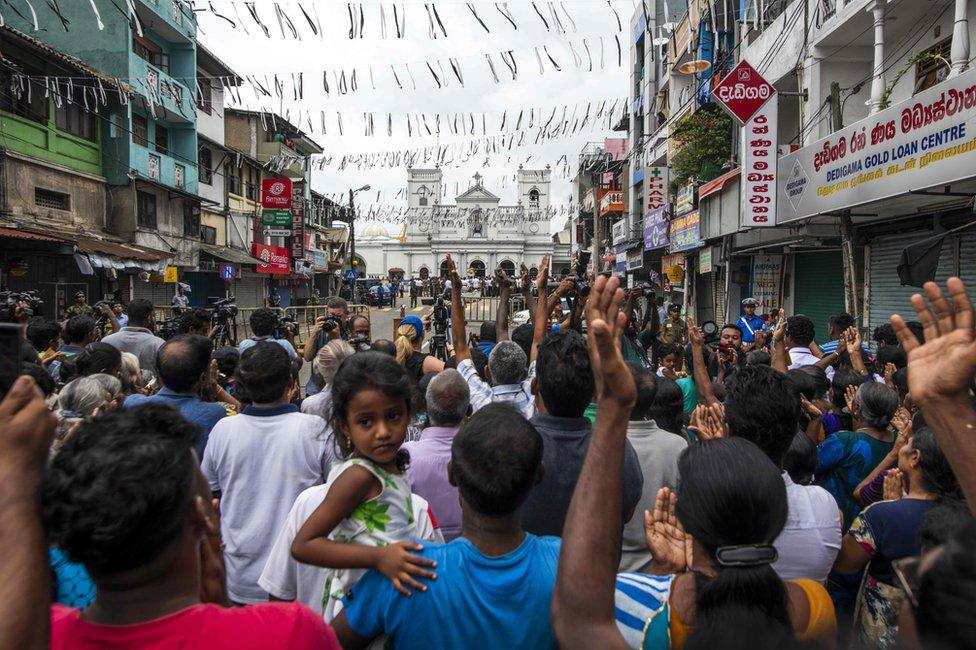
Crowds of people gathered to pray outside St Anthony's Shrine in Colombo
The military is still searching for militants linked to the attack.
The authorities blamed the local Islamist group National Thowheed Jamath (NTJ) for the attacks, but said that they must have had help from a larger network.
The Islamic State group later claimed it was behind the bombings, but provided no evidence of direct involvement.
On Saturday President Sirisena banned NTJ and another group, Jamathei Millathu Ibraheem (JMI), from Sri Lanka.
- Published27 April 2019
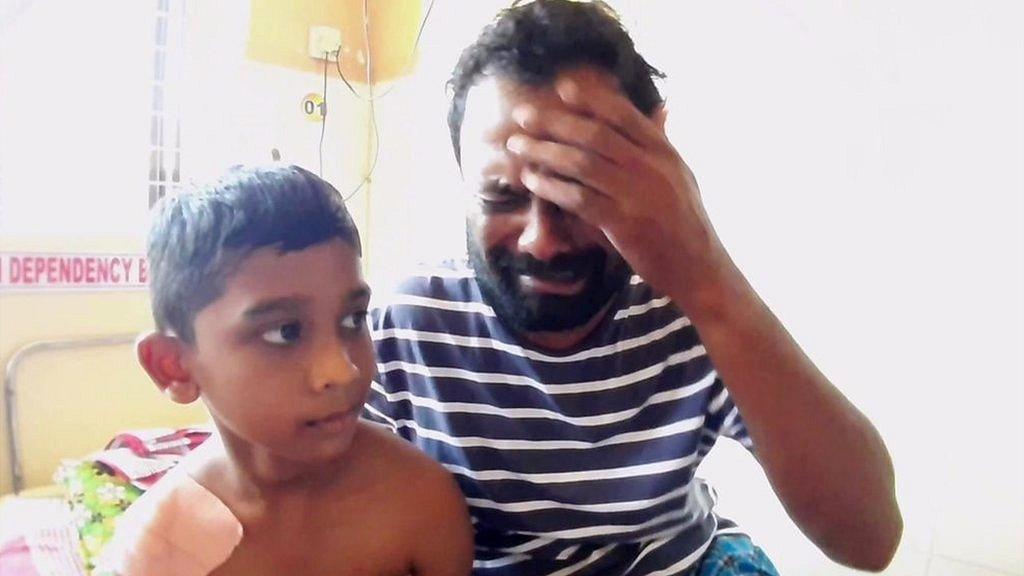
- Published28 April 2019
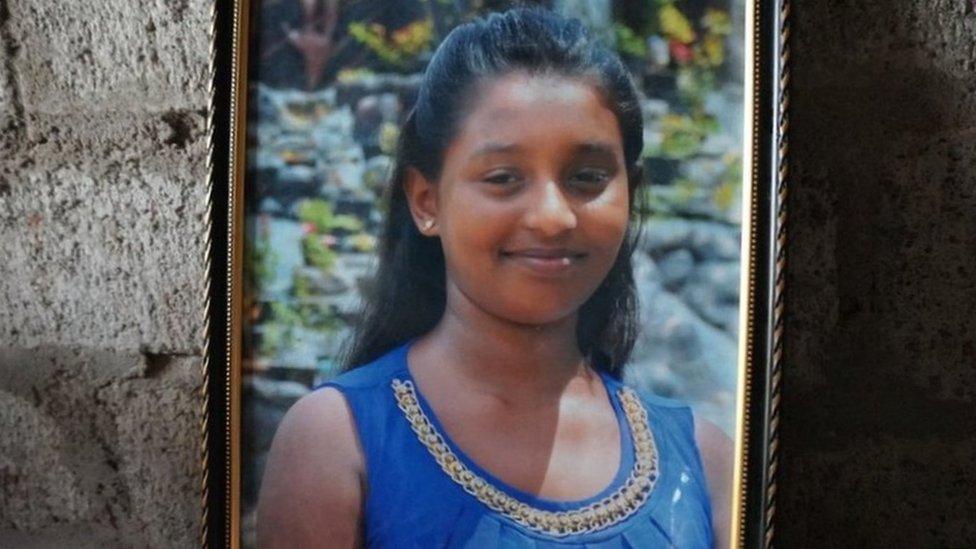
- Published23 April 2019
